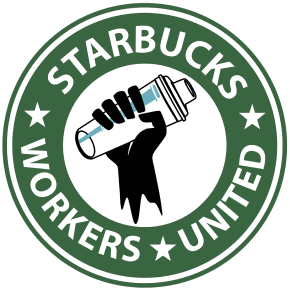All workers deserve to be treated fairly and with dignity, but standing up against the boss can be intimidating. For that reason, it’s essential to know your rights at work. Workers in the U.S. have important protections at most jobs — whether or not they have citizenship.
What are my rights at work as an immigrant?
The National Labor Relations Act (NLRA) gives workers the right to join, form, or participate in a union. It also allows workers to discuss their wages and working conditions with their co-workers, a union, pro-worker organizations, government agencies, the press, and the public. Workers have the right to take collective action alongside their coworkers to fight for better wages and improved working conditions.
But my boss says that’s not allowed!
Bosses often say things like, “You’re not allowed to discuss your pay with your co-workers,” or suggest that anyone who joins a union will get fired. But the law is very clear: Workers have the right to advocate for themselves collectively, to share information about pay and working conditions, and to join, form, or participate in a union — whether or not you’re already protected by a union and whether or not you’re a citizen.
What do I do if my rights are violated?
Your immigration status does not matter: If your workplace rights have been violated, you can (and should!) make a report to the National Labor Relations Board (NLRB). You will not be asked about your immigration status, nor will you need to provide any information about the status of yourself or your coworkers.
The NLRB has no connection to immigration enforcement agencies. They will not share any information about you with the Department of Homeland Security (DHS), including Immigration and Customs Enforcement (ICE) or any other immigration authorities.
NLRB investigations are confidential, so your boss won’t know you provided an affidavit while the investigation is in process, and employers are barred by law from retaliating against someone for testifying.
If you do not feel comfortable communicating in English, the NLRB can provide an interpreter so you can offer information in the language you prefer.
Can my boss retaliate?
Employers can’t threaten employees with threats that the workplace will close or that working conditions will decline if workers organize collectively or decide to form a union. They can’t hold your immigration status against you.
If your boss or company asks employees to provide updated immigration papers or work authorization because you or your coworkers want to unionize or are taking collective action, report it immediately to the NLRB.
If your boss or company threatens to call DHS, ICE, or any immigration authorities because you or your coworkers want to unionize or are taking collective action to improve your workplace conditions, report it immediately to the NLRB.
You have workplace protections against retaliation, including retaliation based on your immigration status.
How do I protect myself and my coworkers when fighting for my rights?
Concerted activity is a protected right. This means that you have the right, with your co-workers, to advocate for yourselves — together. This includes talking with each other about pay and benefits, circulating a petition for better working conditions, joining together to speak with your manager, and walking off the job. The concerted nature of the action is important: A worker acting alone has fewer protections. An activity is considered collective when two or more employees take action together — there’s strength in numbers.
Concerted activity is not protection against publicly disparaging your employer’s products or services, though.
Who is not covered by the NLRA?
Most employees are covered by the NLRA, but following workers are excluded.
- Federal, state, and government workers
- Agricultural workers
- Domestic workers
- Workers employed by a parent or spouse
- Independent contractors
- Supervisors and managers
- Workers at employers subject to the Railway Labor Act, including railroad and airline workers
- Workers employed by anyone else who is not an employer as defined in the NLRA
More questions?
Contact EWOC! We will connect you with an experienced organizer who can talk about your options with you.




